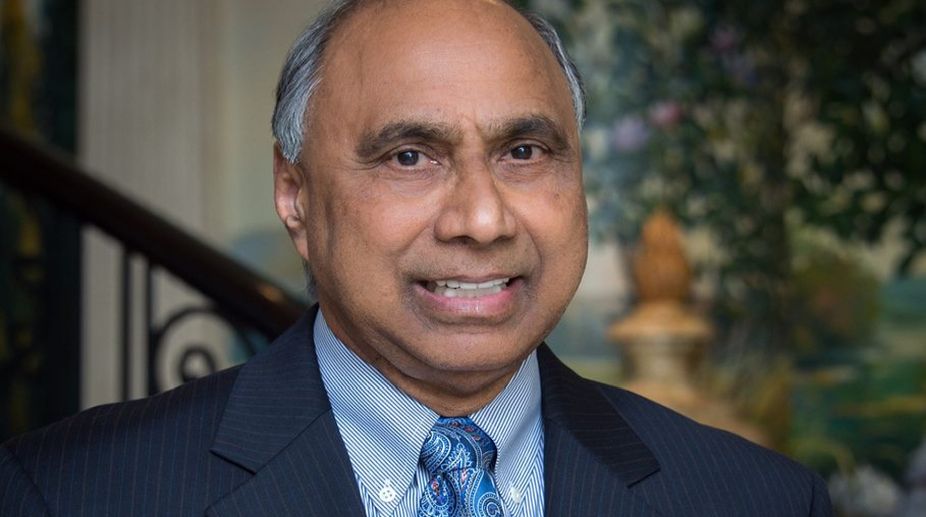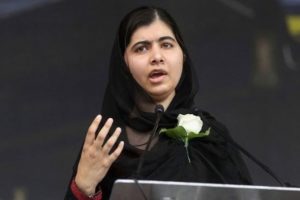Frank F Islam is an entrepreneur, philanthropist, civic leader and thought leader in America with roots in Azamgarh, Uttar Pradesh. He has a special commitment to civic, educational and artistic causes. In all his endeavours, he strives to create opportunities that are sustainable and uplifting for humanity, guided by hard work, focus, quality, innovation and kindness.
Frank currently heads the FI Investment Group, a private investment holding company that he established in 2007 after he sold his information technology firm, the QSS Group. In an interview with Asad Ashraf he talks about his journey, his association with Barack Obama and the future of Muslims in America after Trump.
Advertisement
Q: You are a renowned entrepreneur and philanthropist.Your journey from Azamgarh to America has sometimes been compared to that of Prime Minister Narendra Modi. Your views.
The first part of my journey was not across the ocean but a trip in India from Azamgarh to Aligarh where I received education in a high school and then at Aligarh Muslim University (AMU). This prepared me to venture to the USA to pursue the American dream.
I always wanted to start my own business but I knew that I needed experience first. So, I worked with two major information technology firms in the Washington DC area for 10 years. That gave me the skills and the real-world grounding that I needed to be a business owner.
In 1994, I started my business. Within 13 years, along with my management team, we took that firm from a workforce of one employee to more than 2,000 employees and approximately $300 million in revenue.
Finally, I sold my company to Perot Systems in 2007. That sale allowed me to establish a private foundation that supports educational, cultural and artistic causes in the United States and around the world and to write on topics that are important to the future of this country and the world.
Q: From being a businessman to joining the campaign for Barack Obama during his presidential election, why did you opt for politics?
Let me clarify, I was a major supporter and financial contributor to the Obama campaign but was not in the campaign itself. I got involved in the political process because it is an essential form of civic engagement in a democracy.
Q: What are the challenges for Muslims in America after Donald Trump became President also in terms of conducting business?
It is quite interesting that in spite of his anti-Muslim rhetoric his first visit to a foreign nation was to Saudi Arabia. In his speech there to Muslim leaders from over 50 countries he praised Islam. That was almost a complete reversal from his position when running for President. Trump being Trump it would not surprise me if he does another volte face. No matter what he thinks or says, it is difficult to contemplate that he will take any action that will make things better for American Muslims. On the other hand, it is also difficult to imagine that he will take any specific actions that will be harmful to them. As for the specific impact on Muslims with established businesses, I think that their clientele will stay the same. And, I believe the challenges for those Muslims starting businesses will be essentially the ones that new entrepreneurs always face ~ developing a sound business model, securing financing, hiring good staff, securing customers and delivering value to them.
Q: You have been investing a lot in the education sector in India and America. Why do you think this investment is important?
In a phrase, I would say that education provides “the keys to the kingdom”. Education is a powerful equaliser and opportunity creator.
I invest in education in India and the US because I started my educational journey at Aligarh Muslim University in India and I continued my education by getting two degrees at the University of Colorado in Boulder. In the US, we have made major gifts and supported scholarships at George Mason University, American University, Marymount University and the University of Colorado.
I am glad you chose to characterise our giving to higher education as investments rather than charitable contributions because that is the way we look at it. The return on our investment is students who will graduate and give back to society.
Q: Is there any reason in particular for being very generous to Aligarh Muslim University and donating huge amounts to the institution?
I made this donation because Aligarh shaped my story and influenced my destiny. AMU remains an inseparable and an indispensable part of my life, my story and my journey. Its principles have always guided me during times of calm or crisis. AMU is not just a part of my life. It is a bedrock for so many other people in India. I would not be the person I am if it were not for my Aligarh education.
Q: Unfortunately today the world knows your town Azamgarh for the wrong reasons. What is your view on that? How would you describe the town in Uttar Pradesh now called a ‘terror hub’ from your memories of having spent time there?
My memories of Azamgarh are not of terror but of peace and tranquility. I had those same feelings when I went back to Azamgarh to speak to a group of students there in February. Azamgarh’s current notoriety is hard to comprehend. It dismays me to read and hear bad things about the town. My cherished memories from Azamgarh are of being with my mother and father and my siblings, riding my bike along country roads and flying kites. That is the Azamgarh I remember and love. It was, is and always will be a special place for me.
Q: Being a very successful Muslim from India, do you have any message for young Muslim men and women living in India?
I recognise that many Muslims ~ too many ~ still need to improve their socio-economic life and may be experiencing hostility, prejudice and discrimination. I think the starting point for changing that situation must be with education for those Muslims. Here are some sad facts related to the educational circumstances of Muslims in India:
The 2001 Census Report showed that the literacy rate of Indian Muslims was 59.1 per cent. The rate for Muslim males in urban areas was much higher than in rural areas. The rate for females was substantially lower in both areas.
Let me share some of my thoughts and messages to your young readers:
Dream big, aim high, work hard and pursue your dream. Strive to be the best you can be and achieve your full potential. Never give up. Get a good education. Then learn one new lesson every day. Be a life-long learner. Make it your own journey. Stay true to you. Create your own legacy. Do well but also do good. When you are successful provide ladders of opportunity for others by sharing and giving back. Become the leaders and change-makers for the next generations.











